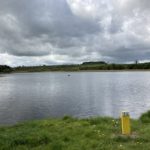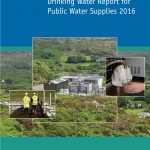25 November 2022: The EPA has released the Drinking Water Quality…
EPA: Urgent action needed to improve private drinking water quality
19 October 2023: The EPA has released the Drinking Water Quality in Private Group Schemes and Small Private Supplies 2022 report. Drinking water is provided to approximately 200,000 people across rural communities in Ireland, by over 380 group water schemes.
- Private drinking water quality is not as good as public water quality.
- The total number of small private supplies remains unknown as not all have registered with their local authority.
- Eighty four percent of registered small private supplies were monitored in 2022, compared with seventy five percent in 2021.
- The government review of the rural water sector identified several key issues in the provision of ruralwater that need to be addressed to protect publichealth.
In addition, many rural commercial and public activities such as schools, creches, nursing homes, pubs and restaurants have their own drinking water wells. There are 1,700 small private supplies registered with local authorities, but the total number of small private supplies remains unknown, as many suppliers haven’t registered their supply.
Local authorities are required to monitor registered supplies annually and whilst 84 per cent of private supplies were monitored in 2022, up from 75 per cent in 2021, the results highlight ongoing issues with the quality of private drinking water supplies:
Ecoli
Meeting E.coli standards is a basic requirement in the provision of safe drinking water. In 2022, fourteen private group schemes were found to have E. coli contamination, indicating that the water supply has not been properly disinfected. The failure of these disinfection systems put the health of approximately 5,500 people that use these drinking water supplies at risk.
Trihalomethanes (THM)
In 2022, 16 private group schemes supplying 14,000 people failed the standard for Trihalomethanes (THMs). THMs are formed when natural organic matter in the water source, such as vegetation, reacts with chlorine used in the disinfection treatment process. THM levels should comply with the drinking water quality standards, while ensuring that the water is fully disinfected. Actions to prevent THM failures need to be prioritised by suppliers, to protect public health.
“It is a local public health concern that private drinking water quality hasn’t improved in recent years despite the availability of public funding to support upgrades to water supplies. In addition, as there is no legal requirement to register private drinking water supplies, it is not possible to quantify the full extent of the risk to public health. The registration of private supplies needs to become a legally enforceable obligation on the supplier.”
Dr Tom Ryan, Director of the EPA’s Office of Environmental Enforcement
A review of the rural water sector was completed in January 2023 on behalf of the Department of Housing, Local Government and Heritage. The review identified several significant issues that need to be addressed to improve drinking water compliance and reduce public health risk in private water supplies. The key issues identified by the review are outlined below:
- All private water supplies should be registered with the local authority.
- Access to funding for water quality improvements varies greatly across local authorities resulting in available funding not being used.
- Measures are needed to improve management at underperforming private group schemes.
“The EPA welcomes the completion of the rural water sector review by the Department of Housing, Local Government and Heritage. The review has highlighted several issues that are contributing to poor water quality in private supplies. It is crucial that these issues, relating to registration, funding and management are addressed so that private water supplies meet required standards and public health is protected.”
Noel Byrne, Programme Manager of the EPA’s Office of Environmental Enforcement
Learn more:
The report is available on the EPA website.
Some key findings of the 2022 report on private water supplies:
- 266 (16%) of the 1,700 small private supplies registered were not monitored.
- The percentage of schemes fully compliant with the E. coli standards was as follows:
- Private group water schemes – 95.9% (14 of 370 failed to meet the standard)
- Small private supplies – 95.5% (73 of 1,434 failed to meet the standard).
- Sixteen private group schemes and one small private supplies failed to meet the Trihalomethanes (THM) standard.
- Monitoring data is available at the following link: SAFER-Data: Welcome to SAFER (epa.ie)
Regulated and Exempt Private Water Supplies
Some private supplies are overseen by the local authority because they are covered by the Drinking Water Regulations. This makes them regulated supplies. Other supplies are not covered by the regulations; these are called exempt supplies. The table below shows which supplies are regulated and which are exempt.
| Type of supply | Number of people served or volume supplied | Regulated or exempt? |
|---|---|---|
| Public Group Scheme or Private Group Scheme | >50 people or 10,000 litres per day | Regulated |
| <50 people or 10,000 litres per day, not supplying any public/commercial activity | Exempt | |
| <50 people or 10,000 litres per day, but supplying a public/commercial activity | Regulated | |
| Small Private Supply | Supplying a public or commercial activity regardless of the number of people served or volume supplied | Regulated |
| Household well (also called private wells) | Single house only | Exempt |
Trihalomethanes
Trihalomethanes (THM) are a by-product of the chlorine disinfection process and are formed where there is an excess of organic matter in the water source. Water suppliers should aim to keep THM levels within the drinking water standards. Sixteen private group schemes serving approx. 14,000 people failed to meet the standard for trihalomethanes. During 2021 the Commission referred Ireland to the Court of Justice of the European Union in relation to THM exceedances. Actions to prevent THM failures need to be prioritised, to protect public health.







